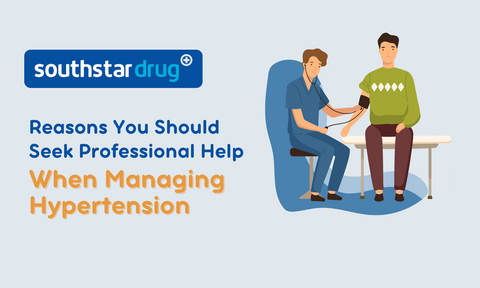How Women Can Give More To Life Even With Diabetes
As Women's Month unfolds, it's paramount to spotlight the extraordinary resilience and strength of women navigating life with diabetes mellitus. While the journey may pose unique challenges, women have the power to not only manage their health effectively but also to enrich their lives and those around them. Let's delve deeper into practical strategies, delectable meal alternatives, intriguing trivia, and empowering insights to guide women with diabetes towards leading vibrant lives while effectively managing their condition.
Give More to a Diabetic Life With Knowledge
Empowerment begins with knowledge. Educating oneself about diabetes management is essential. Understanding the significance of monitoring glucose levels, adhering to medication regimens like gliclazide, and making informed dietary choices is crucial. Reliable sources like the Centers for Disease Control and Prevention (CDC) provide comprehensive information tailored to women, aiding in informed decision-making about diabetes management.
Give More To A Diabetic Life With Practical Diabetes Management:
- Regular physical activity is key to managing blood sugar levels. Incorporating activities like walking, yoga, or swimming into daily routines can make a significant difference.
- Stay hydrated by drinking plenty of water throughout the day, which helps maintain stable blood sugar levels.
- Opt for low-glycemic index (GI) foods such as whole grains, fruits, vegetables, and lean proteins to help regulate blood sugar levels.
- Monitor carbohydrate intake and consider using portion control to manage blood glucose levels
- Prioritize adequate sleep and stress management, as both play a vital role in diabetes management.
Give More To A Diabetic Life With Delicious Meal Alternatives:
- Swap sugary snacks with healthier alternatives like fresh fruit, nuts, or Greek yogurt.
- Try incorporating more plant-based protein sources like tofu, legumes, and lentils into meals to help control blood sugar levels.
- Experiment with flavorful herbs and spices to enhance the taste of meals without relying on added sugars or salt.
- Enjoy satisfying and nutrient-rich meals with recipes from reputable sources like the American Diabetes Association (ADA), tailored specifically for women managing diabetes.
Give More To A Diabetic Life with Fascinating Insights
Did you know that women with diabetes have a higher risk of heart disease compared to men with diabetes? Gestational diabetes, a type of diabetes that occurs during pregnancy, affects approximately 2-10% of pregnancies in the United States each year. Furthermore, women with diabetes are more likely to experience urinary tract infections (UTIs) due to changes in blood sugar levels affecting the urinary tract's environment.
Give More To A Diabetic Life by Celebrating Resilience and Empowerment
As Women's Month unfolds, let's celebrate the strength and resilience of women with diabetes as they navigate life with grace and determination. By arming themselves with knowledge, incorporating practical tips for diabetes management, exploring delicious meal alternatives, and embracing intriguing trivia, women can empower themselves to lead vibrant lives while effectively managing their condition. Together, let's stand in solidarity in support of women with diabetes, inspiring and uplifting each other on the journey to wellness.
Sources:
https://www.cdc.gov/diabetes/library/features/diabetes-and-women.html
https://diabetes.org/health-wellness/weight-management/stay-pn-track-during-holidays
https://www.cdc.gov/diabetes/library/features/living-well-with-diabetes.html
https://www.healthline.com/nutrition/16-best-foods-for-diabetics












